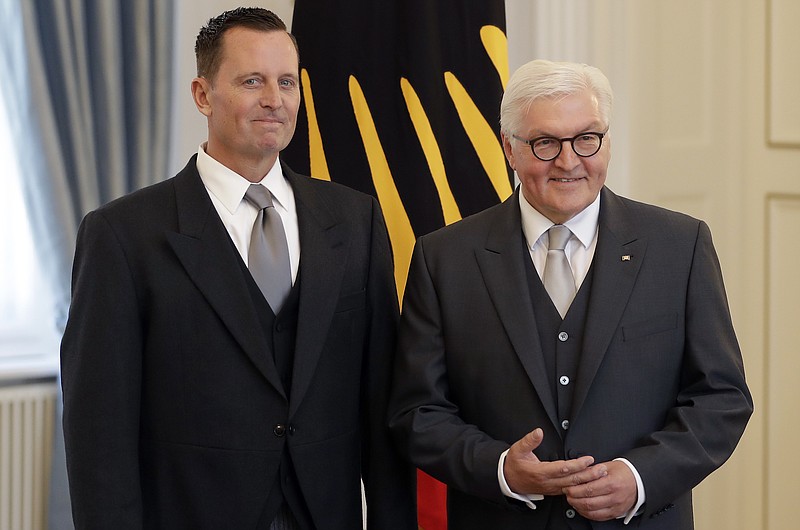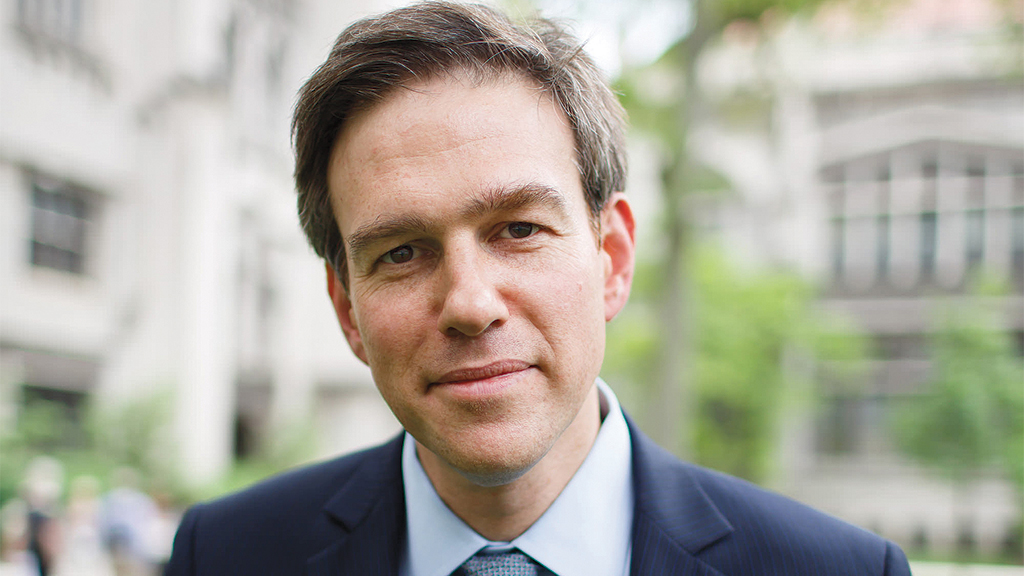BERLIN - "It's like being a gay conservative in the Republican Party."
That is Richard Grenell's instant reply to my question about what it's like being an American diplomat in Europe with Donald Trump as president. Grenell, the new U.S. ambassador to Germany, is conservative, gay and, as of this week, already controversial. He doesn't seem to mind at all.
The controversy stems from his Tuesday tweet urging that "German companies doing business in Iran should wind down operations immediately." Germans were not amused by what sounded like Orders From Headquarters. Wolfgang Ischinger, a former German ambassador to Washington, tweeted back: "Never tell the host country what to do, if you want to stay out of trouble."
Grenell is having none of it.
"I didn't say 'you must.' I didn't say 'you have to.' The word 'should' is at a moral level. You can't do business in Iran without giving money to the mullahs and to the IRGC," he says in reference to Tehran's Islamic Revolutionary Guards Corps, the entirety of which was sanctioned for terrorism by the U.S. in October.
On Tuesday, the Treasury Department issued a detailed guidance memo on what sanctions come back into effect and when. Six months from now, "secondary sanctions" imposed against companies and people who do certain types of business with Iran will be back in force.
That means a sword hangs over the head of any European company doing business with Tehran that also has, or seeks, a market in the U.S. The European Union's entire trade with Iran amounts to $25 billion. With the U.S.: $755 billion. It's why the idea that Europe will break with Washington in protest of Trump's Iran decision is absurd. But it's also why there's so much resentment.
How to ease the resentment? "The payoff is the trade issues," Grenell says, hinting that the administration is prepared - in exchange for strong cooperation on Iran - to climb down from its threats to impose steel and aluminum tariffs and to start a trade war with Europe.
He also waxes nostalgic about the depth and breadth of U.S. cooperation with Germany during his time working as U.S. spokesman at the United Nations, including for then- Ambassador John Bolton. Grenell's close ties to the now-national security adviser make him the only U.S. ambassador in Europe with any White House clout.
That still leaves unanswered the question of where (if anywhere) the U.S. and Europe go from here on Iran. "Look at the E3 statement; read it to the end," Grenell says, referring to Tuesday's joint declaration by Britain, France and Germany on Trump's exit from the Iran deal. "We are united in denying nuclear Iran. We want to state the goal, not the tactic."
The statement to which Grenell refers acknowledges that the nuclear deal had critical shortcomings: its sunset provisions, the weakening of restrictions on ballistic missiles, Iran's "destabilizing regional activities." The differences between Europe and the Trump administration hinged on the question of whether the problems could be resolved within the framework of the agreement.
Trump concluded they could not. He also said he was "ready, willing, and able" to "make a new and lasting deal." Do Europeans want to be part of that fix?
They should. The peril with Washington's current sanctions strategy is that it will do much more to punish Iran's people than it will their leaders.
The better play is to hit Iran's leaders at the nexus of power, corruption and terror, using targeted tools such as the Global Magnitsky Act.
Iran is a kleptotheocracy, in which the ruling clerics and the Revolutionary Guards have built financial empires based on expropriation and theft.
Hitting that nexus with a combination of sanctions, criminal penalties and public disclosures of hidden financial assets would be morally right, popular with ordinary Iranians and useful for concentrating the minds of Iran's leaders on resuming serious nuclear negotiations. It should not be a hard call for Europeans to sign on and steer a smarter pressure policy.
Among the disasters of Trump's first year is that, instead of tough diplomacy, the United States had no diplomacy at all. The promise of Grenell's presence in Berlin is that this might at last be about to change.
The New York Times

